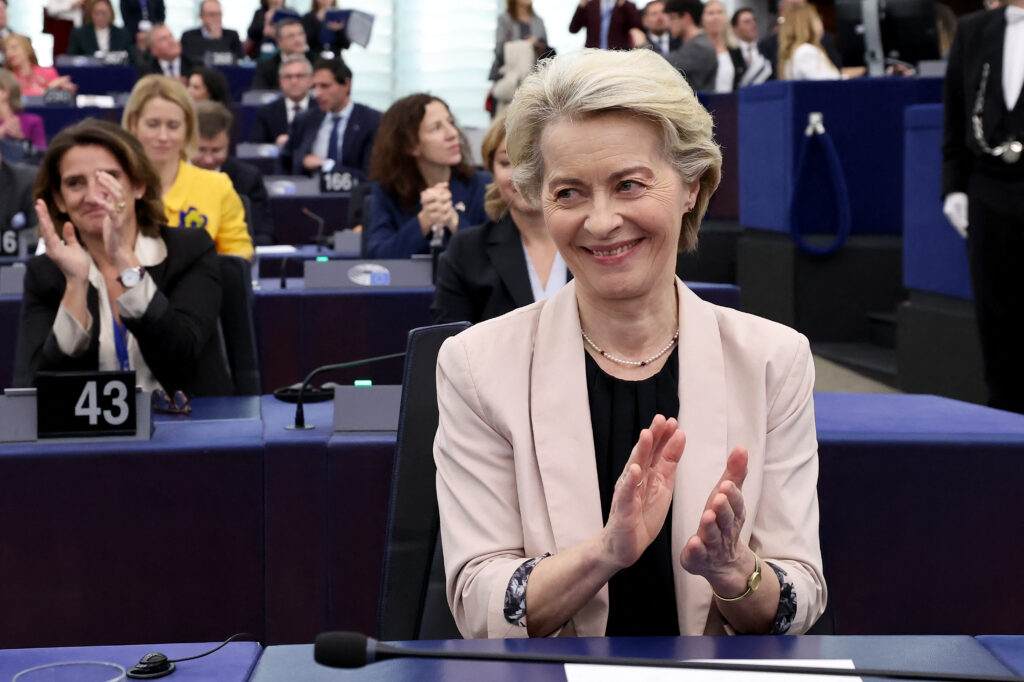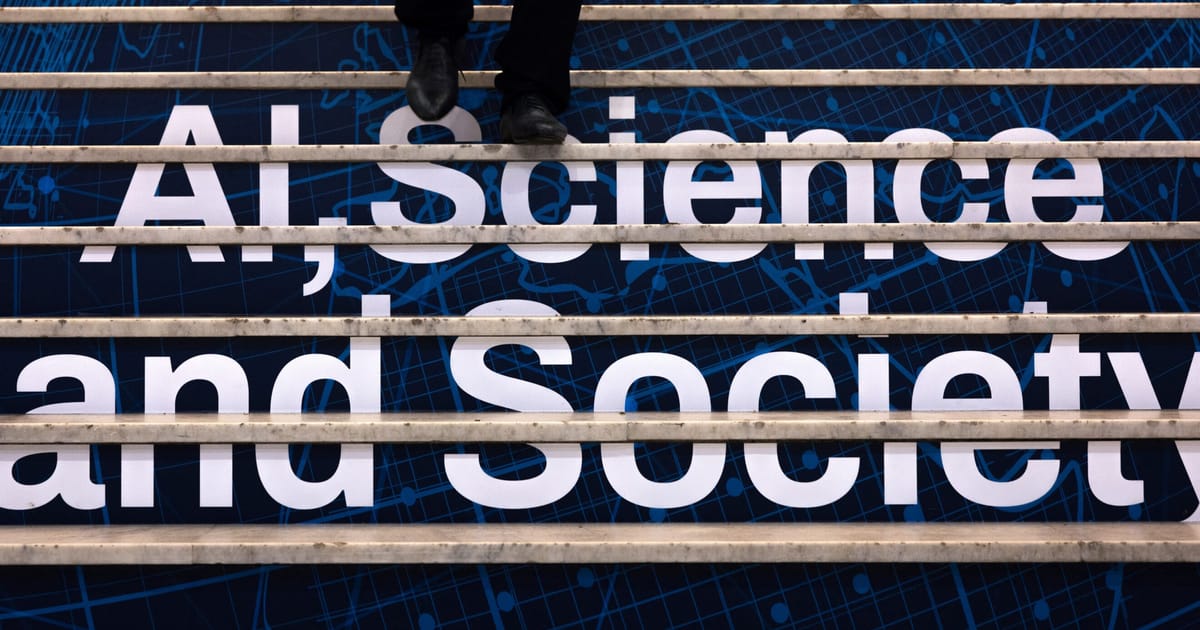By mid-2024, that tone had shifted as von der Leyen sought a second mandate and promised to tackle problems that could hold back EU growth, such as a surfeit of red tape.
 AI innovation has taken over from AI regulation as a talking point since European Commission President Ursula von der Leyen began her new five-year term in December. | Frederick Florin/Getty Images
AI innovation has taken over from AI regulation as a talking point since European Commission President Ursula von der Leyen began her new five-year term in December. | Frederick Florin/Getty Images
Europe was already leading in making AI safe, von der Leyen argued: “We must now focus our efforts on becoming a global leader in AI innovation.” That job was entrusted to the Commission’s new tech boss, Henna Virkkunen of Finland.
It’s a hefty challenge. The U.S. is home to most leading AI model providers, such as OpenAI’s GPT series, Google Gemini and Anthropic’s Claude. It also hosts the world’s biggest cloud providers — Amazon, Microsoft and Google — and AI chips giant Nvidia.
European businesses have been very slow even to use the technology, with only 13 percent of them having adopted AI.
Virkkunen, just two months into the job, has tried to correct that course.
For starters, she announced a €1.5 billion investment into seven AI-optimized supercomputers, half of that amount funded by the EU. The supercomputers should help European AI startups with training ChatGPT rivals.
